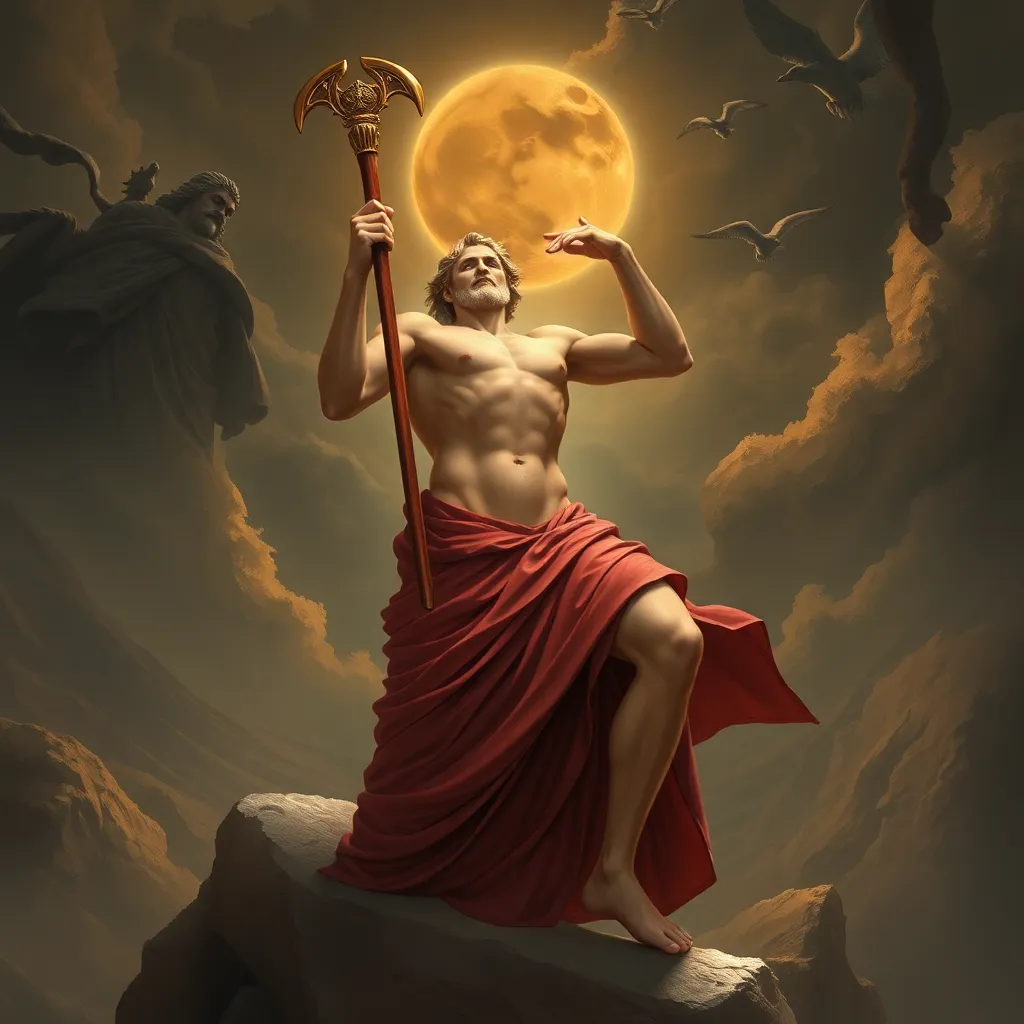The Influence of Theseus on Modern Heroic Narratives
I. Introduction
Theseus, a prominent hero of Greek mythology, is celebrated for his numerous adventures and significant contributions to Athenian culture. Known for his intelligence, bravery, and leadership, Theseus embodies the qualities of a classic hero. This article aims to delve into the influence of Theseus on modern heroic narratives, exploring how his character has shaped contemporary storytelling and the archetype of the hero.
Understanding Theseus’s impact is crucial, as it reveals the lasting significance of ancient myths in shaping modern themes of heroism, morality, and identity.
II. The Myth of Theseus: A Brief Overview
Theseus’s adventures are rich and varied, highlighting his bravery and strategic mind. Some of his key exploits include:
- Defeating the Minotaur in the labyrinth of Crete
- Slaying bandits and monsters on his journey to Athens
- Participating in the Argonauts’ quest for the Golden Fleece
- Establishing the Panathenaic Festival in honor of Athena
In the context of Greek mythology, Theseus is often viewed alongside other heroes such as Heracles and Perseus. However, his story is unique in its emphasis on intellect and diplomacy as much as physical prowess. Unlike Heracles, who relies heavily on brute strength, or Perseus, who benefits from divine assistance, Theseus represents the more nuanced aspects of heroism.
III. Archetypal Hero Framework
Joseph Campbell’s concept of the Hero’s Journey outlines a universal pattern found in many myths and stories. This framework includes stages such as the call to adventure, challenges and trials, and the eventual return home transformed. Theseus exemplifies this journey:
- Call to Adventure: Theseus sets out from Troezen to claim his birthright in Athens.
- Trials: He faces various challenges, including battling the Minotaur and overcoming treacherous foes.
- Transformation: Theseus evolves from a young man into a wise and capable leader.
The psychological and cultural significance of the hero archetype resonates in modern narratives, where characters often undergo similar journeys of self-discovery and growth. The enduring appeal of Theseus lies in his ability to inspire audiences to confront their challenges and evolve.
IV. Themes of Leadership and Sacrifice
Theseus is not only a hero but also a leader who faces adversity with courage. His decisions often reflect a deep sense of responsibility for his people. For instance, when he volunteers to be one of the youths sent to Crete as a sacrifice to the Minotaur, he demonstrates selflessness and bravery.
The concept of sacrifice is prevalent throughout Theseus’s adventures. His willingness to risk his life for the greater good mirrors the sacrifices made by modern heroes in literature and film. This theme can be seen in various contemporary narratives, including:
- Superheroes who protect their cities at great personal cost.
- Leaders who make difficult choices for the welfare of their communities.
- Characters who confront their fears to save others.
V. The Duality of Theseus: Hero and Anti-Hero
Theseus’s character is marked by moral complexities, which contribute to his duality as both hero and anti-hero. While he is celebrated for his bravery, he also exhibits flaws that complicate his legacy, such as:
- His abandonment of Ariadne after she helped him escape the labyrinth.
- His violent actions against those he perceives as enemies.
This duality reflects the moral ambiguities present in modern narratives. Contemporary heroes often grapple with their flaws and make morally questionable decisions, which makes them more relatable and human. Case studies of characters such as:
- Walter White from *Breaking Bad*
- Tony Stark from *Iron Man*
- Katniss Everdeen from *The Hunger Games*
show how this complexity enriches storytelling, allowing audiences to explore themes of redemption, guilt, and the consequences of one’s choices.
VI. Influence on Literature and Film
Theseus’s story has been adapted directly and indirectly in various forms of literature and film. Direct adaptations include:
- Plays such as *A Midsummer Night’s Dream* by William Shakespeare, which features Theseus as a character.
- Modern retellings in novels like *The Song of Achilles* by Madeline Miller.
Moreover, Theseus’s influence extends to character development and plot structures in many modern stories. For example:
- The quest narrative in *Harry Potter*, where Harry faces trials similar to those of Theseus.
- The leadership struggles in *Game of Thrones*, reflecting Theseus’s complex role as a leader.
VII. Cultural Reinterpretations of Theseus
Throughout history, Theseus has been reinterpreted in various cultural contexts. In different eras, his character has evolved to reflect contemporary values and issues, such as:
- The portrayal of Theseus as a symbol of democracy and civic responsibility in ancient Athens.
- Modern interpretations that emphasize themes of feminism, particularly in the depiction of his relationships with female characters.
This evolution illustrates how Theseus remains relevant in discussions about heroism and morality, allowing each generation to reimagine his story in light of current societal values.
VIII. Conclusion
Theseus’s lasting impact on hero narratives is evident in the way his adventures and character complexities resonate with modern audiences. He embodies the archetypal hero, facing challenges while navigating the moral ambiguities of leadership and sacrifice.
As we continue to tell stories that reflect our values and struggles, the relevance of Theseus remains strong. His journey inspires us to confront our adversities, embrace our duality, and strive for greatness, ensuring that the evolution of the heroic ideal in modern culture remains vibrant and vital.




